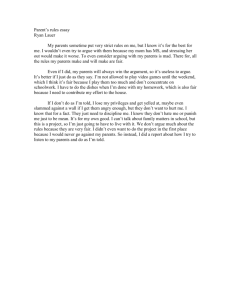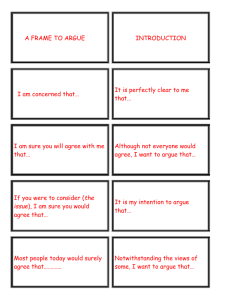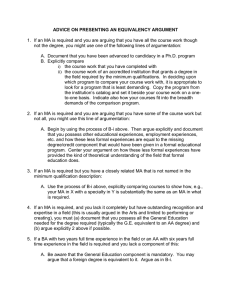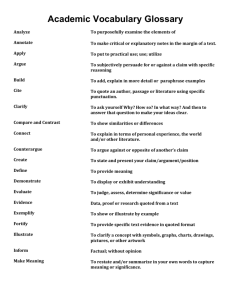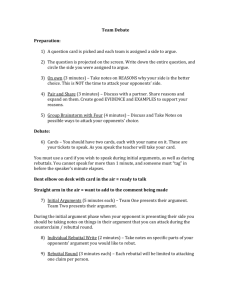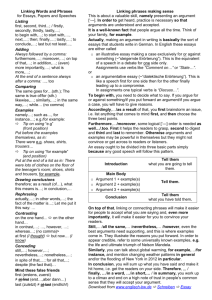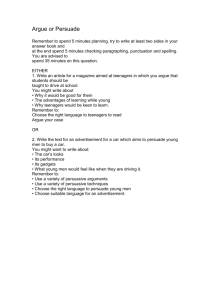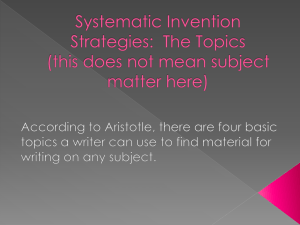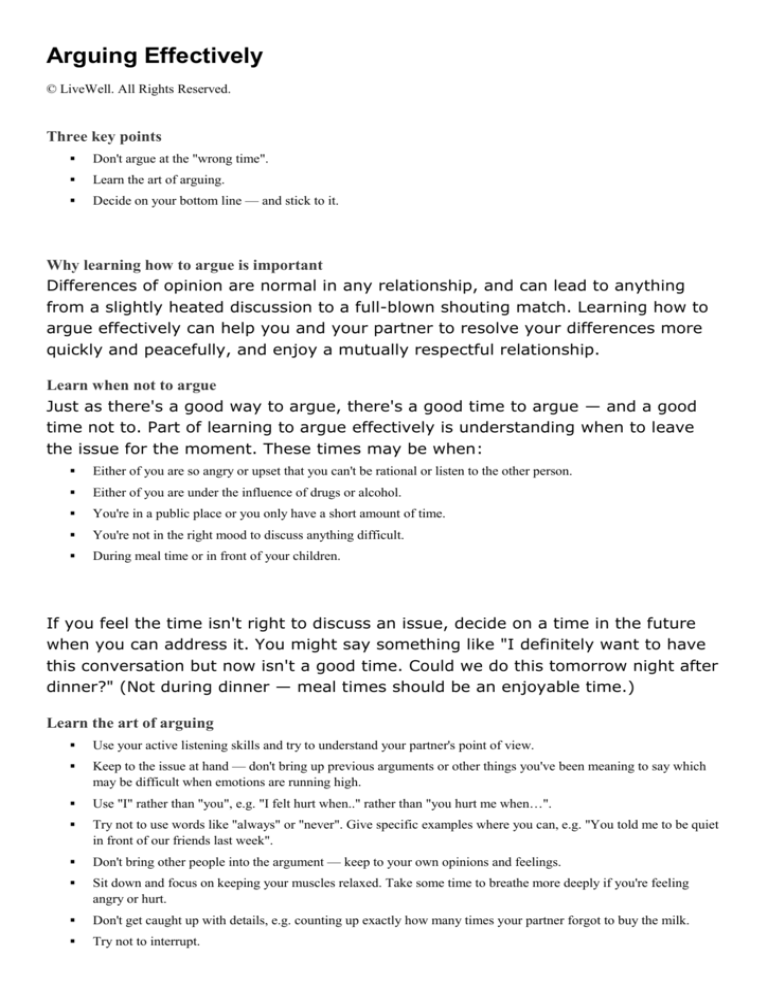
Arguing Effectively
© LiveWell. All Rights Reserved.
Three key points
Don't argue at the "wrong time".
Learn the art of arguing.
Decide on your bottom line — and stick to it.
Why learning how to argue is important
Differences of opinion are normal in any relationship, and can lead to anything
from a slightly heated discussion to a full-blown shouting match. Learning how to
argue effectively can help you and your partner to resolve your differences more
quickly and peacefully, and enjoy a mutually respectful relationship.
Learn when not to argue
Just as there's a good way to argue, there's a good time to argue — and a good
time not to. Part of learning to argue effectively is understanding when to leave
the issue for the moment. These times may be when:
Either of you are so angry or upset that you can't be rational or listen to the other person.
Either of you are under the influence of drugs or alcohol.
You're in a public place or you only have a short amount of time.
You're not in the right mood to discuss anything difficult.
During meal time or in front of your children.
If you feel the time isn't right to discuss an issue, decide on a time in the future
when you can address it. You might say something like "I definitely want to have
this conversation but now isn't a good time. Could we do this tomorrow night after
dinner?" (Not during dinner — meal times should be an enjoyable time.)
Learn the art of arguing
Use your active listening skills and try to understand your partner's point of view.
Keep to the issue at hand — don't bring up previous arguments or other things you've been meaning to say which
may be difficult when emotions are running high.
Use "I" rather than "you", e.g. "I felt hurt when.." rather than "you hurt me when…".
Try not to use words like "always" or "never". Give specific examples where you can, e.g. "You told me to be quiet
in front of our friends last week".
Don't bring other people into the argument — keep to your own opinions and feelings.
Sit down and focus on keeping your muscles relaxed. Take some time to breathe more deeply if you're feeling
angry or hurt.
Don't get caught up with details, e.g. counting up exactly how many times your partner forgot to buy the milk.
Try not to interrupt.
Don't deliberately try to hurt your partner's feelings, instead focus on what you are feeling. Instead of launching
into a list of expletives, try saying "I really want to hurt your feelings after what you just said".
Don't expect your partner to be able to read your mind.
If the argument feels like it's going round and round or is getting heated, suggest you try a different approach or
have some time out.
Re-visit the argument when you're both calmer — e.g. "I've been thinking about what you said and I think you had
a point when…" or "I feel like I didn't get my feelings across very well last night, what I meant to say was…".
Decide on your bottom line
One of the biggest lessons we need to learn in relationships is that we can't
control someone else's behaviour or make them change. All we can do is be clear
about our needs, let someone else know how their behaviour is affecting us, and
offer a compromise. If you feel stuck in an argument, decide on your "bottom line"
— the point at which you refuse to put up with someone else's behaviour. Let
them know clearly and calmly how you feel and follow through if you need to. For
example, "If you forget your keys again I won't take them into work for you." Or
"If you bring your noisy friends home again then I will go and stay with my friend
for the weekend".
With practice, arguments can be a healthy way to get difficult feelings out into the
open and negotiate tricky subjects. And work out a solution that is satisfactory for
both of you.
And finally
It goes without saying that violence is never an acceptable response to an
argument. If you're ever worried that your partner (or you) may become
physically violent, leave the situation immediately and go to a safe place.

